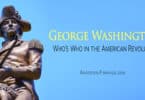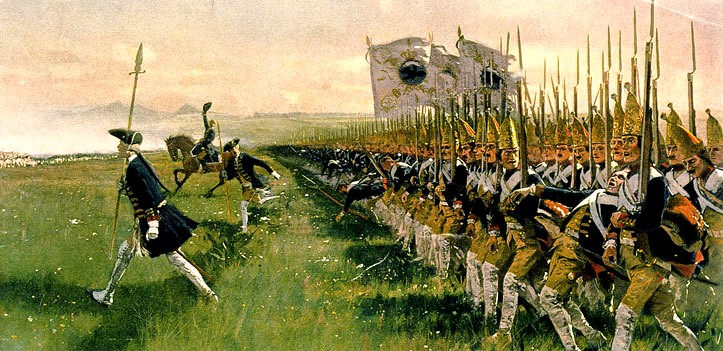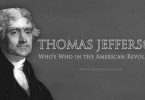Benjamin Franklin is so widely known to Americans of every century since the Revolution and was so closely associated with it, even in his lifetime, he is often referred to as “the only President of the United States who was never President of the United States.” We all know Franklin was a brilliant author, newspaper publisher, scientist, inventor, and politician, and had a reputation with the ladies. We also know he was instrumental in orchestrating American independence. But, what is this remarkable man’s backstory?
Benjamin Franklin was born on January 17, 1706, in Boston, which was then a city in the English colony of Massachusetts. His father, Josiah Franklin, was a soap and candle maker, born in England. His mother, Abiah Folger, was born in Nantucket, Massachusetts to a schoolteacher father and a mother who was a former indentured servant. Benjamin was the fifteenth child of Josiah, and the eighth of Abiah, as Abiah was Josiah’s second wife. Josiah married his first wife, Anne Child, when still in England, and had three children with her there before immigrating to America. Benjamin was also the tenth and last son of Josiah.
His parents were Puritans, especially his mother, whose own parents had fled England for America when King Charles I began persecuting the Puritans there.
Because his parents had so many children, Benjamin did not get the education they wanted for him. They originally intended for him to train to be a clergyman, but only had enough money to send him for two years, not long enough to graduate. He then went to the Boston Latin School, but also did not graduate. He educated himself by reading with a great appetite for books, but his formal education ended when he was ten.
He worked with his father for a while, then was sent to Philadelphia to apprentice with his older brother, James, as a printer when he was twelve. When he was fifteen, James denied Benjamin the chance to write a letter to James’s paper, so Franklin wrote one under the pseudonym of Silence Dogood, an older widow. Silence published many letters in the paper, and they were popular among readers, offering advice to the people of the city. James was displeased when he discovered Mrs. Dogood was Benjamin. Benjamin took over the paper for three weeks when James was briefly jailed for publishing material unflattering to the governor and used Mrs. Dogood to advocate passionately for free speech. When James was released, Benjamin left his apprenticeship without permission at age seventeen, which legally made him a fugitive. James did not pursue him.
As Benjamin was making his way in the world on his own for the first time, he met and proposed to Deborah Read, while boarding with her family. Deborah’s mother did not give her permission, because Franklin was not financially stable yet, and because he was on his way to England to do some business for the governor. Franklin’s stay in England was extended, and the governor did not give him the financial support he promised. Because of this delay, Deborah married another man, which turned out to be the wrong decision. Her husband was in debt and soon fled his debtors, going to Barbados and leaving Deborah behind, taking her dowry with him. Though her husband was not heard from again, and his fate was unknown, current marriage laws made her not free to legally marry again.
When Franklin returned from England, he still wanted Deborah, and the two of them set up a common-law marriage in 1730. They took Benjamin’s illegitimate son, William, into their home and raised him (William’s mother has never been identified), and had two more of their own… a son named Francis, who died of smallpox at age four, and a daughter named Sarah, who married Richard Bache, had seven children of her own and took care of her parents in their old age.
Franklin was stationed overseas many times during his life, sometimes on colony business, sometimes on United States business, and was often gone for years at a time. Deborah was afraid of sailing, so she never went with him. Because of this, she died in 1774 while he was in England, after writing to him that her fondest wish was to see him one more time. She didn’t, as Franklin didn’t return until the next year.
When he returned from England after losing his wife, the Revolution was already begun. He was almost immediately selected by Pennsylvania to be their delegate at the second Continental Congress. While there, Benjamin was appointed to the “committee of five” to draft the Declaration of Independence, though Thomas Jefferson actually wrote it, with the rest of the committee only providing edits.
After the Revolution, Americans considered him second only in importance to George Washington, and a number of busts and portraits were made of him to honor him. He also became involved in the abolitionist cause after the Revolution and freed his two slaves. His involvement in the cause brought him to the position of President of the Pennsylvania Abolition Society.
Benjamin Franklin has a unique position in American history in being the only Founding Father who signed all four major documents of American independence: the Declaration of Independence, the Treaty of Alliance with France, the Treaty of Paris that ended the Revolution, and the US Consitution.
In the midst of all of this, he had a college named after him (he contributed a small sum of money to it), and wrote his autobiography, first as a letter to his son, and then because he thought it would be of benefit to all of mankind.
Benjamin remained active in American society virtually up until his death on April 17, 1790, at his home in Philadelphia, age 84. Around 200,000 people attended his funeral, and he was buried in Christ Church Burial Ground in Philadelphia.
Back when he was a young man of twenty-two, he wrote what he then hoped would be his own obituary. It read:
“The Body of B. Franklin Printer; Like the Cover of an old Book, Its Contents torn out, And stript of its Lettering and Gilding, Lies here, Food for Worms. But the Work shall not be wholly lost: For it will, as he believ’d, appear once more, In a new & more perfect Edition, Corrected and Amended By the Author.”
Yet, by the time he was older, he opted for something simpler. Per his own written instructions in his will, his dual grave marker simply reads: “Benjamin and Deborah Franklin.”
His headstone may be simple, but this grand man of American history certainly was not. His legend lives still.






